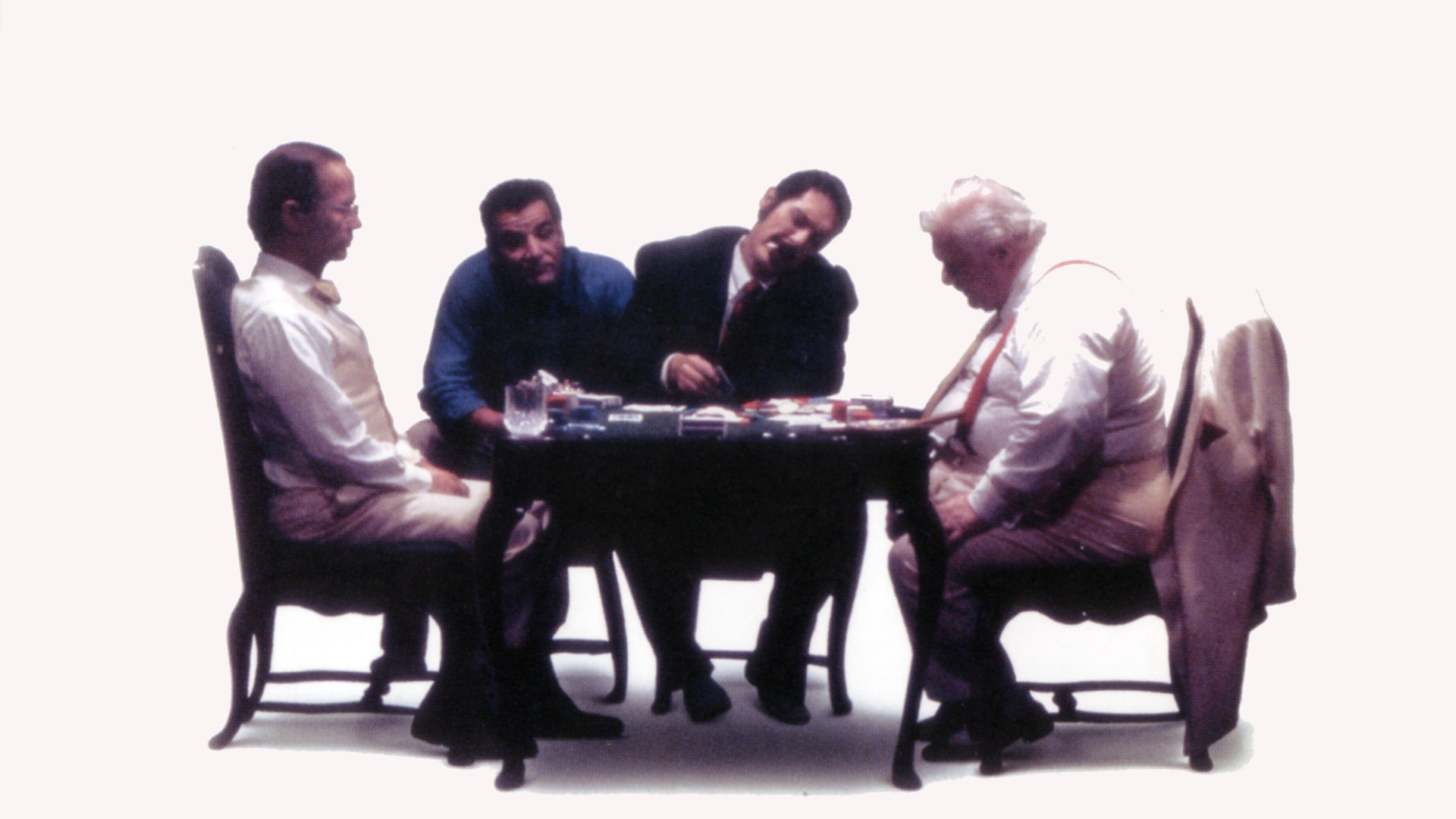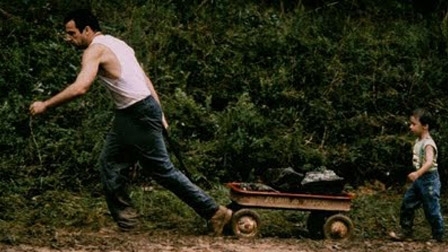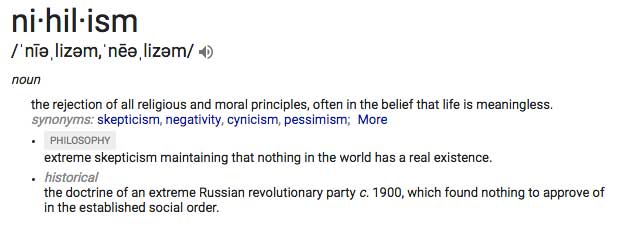The Music of ChanceThe Music of Chance Explained in Full
I don’t generally go backwards in time for my movie reviews. There are a lot of reasons for this. The most honest answer is that no one is looking for old movie discussions. Even a new movie falls off the table quite quickly… so imagine what the viewership will be like for a movie made back in 1993?!? Hahah. But I had a reader hit me up with a fantastically unique request.
I have two things for you Taylor. First, I want to thank you for your great website. I love to pick apart movies. The more they challenge me the better I like them. Your intelligent explanations have shed light on some questions I’ve had about some of my favorites as well. For example, the timeline of Primer has always made my head spin. Your diagrams helped. Keep up the good work.
Also, it’s probably been twenty or so years ago that I happened on a great movie called The Music of Chance. It stars James Spader, Mandy Patinkin, and a handful of other major Hollywood names. Have you heard of it? I would love to read your thoughts on the philosophical questions presented regarding chance or fate. I’ll leave the inquiry at that so as not to reveal too much of the movie in case you haven’t seen it yet.
Oh how sweet. You really shouldn’t have. What? I didn’t need to include that first para? Nah. It provided context! hahahah. So our dear (and oh so kind) reader, Geoff has thrown down the gauntlet for a movie I have never heard of. Even once, in passing. Ever. The Music of Chance? Mandy Patinkin? and Spader? Are you kidding me? How did this slip past my grasp??
Just for context, one of my favorite movies of the nineties – that I have yet to write about out here – is entitled, Bad Influence. Have you guys seen it? James Spader and Rob Lowe. Great dark little flick. And it basically turned me on to anything Spader was doing back then. And everyone know Patinkin from Princess Bride, but he’s done a lot more than just that one film. But when I watched this trailer I was hypnotized. I had no idea what I was watching…
Not because of the fact that this was ripped from a VHS cassette. But because nothing I saw here made any sense.
And so I dove in with glee.
The Music of Chance Basic Overview
The fundamentals of the story are simple enough. We have a grifter/drifter named Jack, (Spader) accidentally meeting up with Jim (Patinkin) who is driving endlessly around the United States. Jack has just been robbed of the money he had just won at a card game that he needed for a big stakes poker match he was certain was a sure thing. Being a fairly optimistic and hopeful character, Jim puts up the money for Jack to get into his game.
So the two of them head out to this millionaire’s mansion to play this game. Will Flower and Billy Stone are the rich poker players that have invited Jack out to play. And while there, Jack and Jim are amazed at the life these two rarified scions of industry live. The most interesting of which is a model that Billy built of their lives that is replete with models of their two new visitors.
Soon the poker game that Jack and Jim came to play commences. And with a bang Jack is off to a fantastic start. But eventually he Jim wanders off to inspect the model and “take a nap”. But while Jim is gone the poker gods turn against him and Jim starts losing prestigiously. Oh, one other thing Jim does while ‘taking his nap’ was to steal the model of their two characters, which is later cited by Jim as the reason for luck turning against him.
Next thing we know, Jim’s car is gone, and they are writing up documentation for a loan from Messrs. Stone & Flower. And at the end of it all Jack and Jim are completely at a loss as to what happened and how their lives were ruined by a simple game. But the millionaires decide to be benevolent and to give them an opportunity to pay off what they are owed.
You see, they recently purchased the stones of an old castle in order to use them for a wall in a meadow near the house. If you are lost. Don’t worry, you are right where you are supposed to be. And so they sign up to build this crazy wall with no purpose and no real reason for being.
A few days later Jim and Jack are situated in a small single wide out in the meadow where the wall is to be built and the work commences. They begin digging out the space for the foundation. They start placing rocks, and cementing them in. The work is going to take them several months to accomplish and all the while Jim and Jack aren’t allowed much in the way of contact with the outside world. At all.
Soon enough the work is “completed” and Jack and Jim start to make arrangements to leave. But not before they celebrate with a hooker (from Pump Up The Volume fame Samantha Mathis, yet another brilliant nineties movie I absolutely adored), and a party in the single wide. But upon reaching the completion of their contract they are notified that they owe for the food that they had been eating all along and that they wouldn’t be allowed to leave. Not taking that sitting down, Jack and Jim dig a hole under the fence and Jack runs for it, leaving Jim behind.
The next day, Jack is found beaten up, and unconscious, in the meadow. Mr. Walsh hauls Jack into town and leaves him with the hospital… but doesn’t allow Jim to go. A few days later, Walsh tells Jack that he is all better and discharged from the hospital. Jim is fully aware that Jack is most likely dead.
A month or two later, Jim is complete with his obligation to his debts and he is free to go. Mr. Walsh invites Jim out for a beer with him and his son. He agrees and then asks if he can drive his old car when the night is over. And later that night, on the way home, Jim drives way to fast, swerves, and crashes his BMW. He seems to be the only one to survive the crash and he stumbles his way back to the road. A little while later he is picked up by another driver and he drives off in much the same way that the movie began with a staggering Jack, cut and bleeding from his fights for the money.
The end.
The Music of Chance Explained in Detail
There is no way, in God’s gloriously green earth that I can possibly explain this movie to you. Ok, ok… it isn’t because I don’t know what is going on… but because of how the movie was written. Put your pitchfork down and listen to me.
When I finished this movie it had to have been 2 am, but I immediately began searching for a clue to crack this movie open. And I searched for no more than 30 seconds when I realized everything that was going on. The movie is based on an absurdist novel by Paul Auster. And voila! You have your answer. Right?
What, no?
Hrm. hahaha. Well, if you’ve ever read an absurdist novel before you know exactly what is going on here. But if not… I will try my best. When I was a teen, I fell in love with The Cure. Depeche Mode, Oingo Boingo, U2, REM, you know the drill. But The Cure had a special place in my heart. And one day I tripped across Robert Smith’s extraordinarily controversial song called Killing an Arab. But I was confused. What the heck is Robert going on about here? I had no idea. So, knowing my Lit Teacher (not my teacher who was LIT, my LITERATURE teacher… geeze guys) would know as he was a huge Cure fan, I went and asked him. His response? Pretty annoying to me, but brilliant from a teaching point of view… he walked over to a bookshelf and pulled down a book entitled, The Stranger by Albert Camus. Here’s what wikipedia has to say about the book:
The title character is Meursault, an indifferent French Algerian described as “a citizen of France domiciled in North Africa, a man of the Mediterranean, an homme du midiyet one who hardly partakes of the traditional Mediterranean culture”. He attends his mother’s funeral. A few days later, he kills an Arab man in French Algiers, who was involved in a conflict with a friend. Meursault is tried and sentenced to death. The story is divided into two parts, presenting Meursault’s first-person narrative view before and after the murder, respectively.
So I read the book. And then I wandered back into his office and said again, “What the heck? Now, what the heck for both the song, AND the book!” And Mr. McKinney basically walked me through the novel from beginning to end, explaining the concept of absurdism as he went. ‘You see, Camus was calling out the larger absurdity of the larger system in France. And that we have to just embrace the absurdism all around in order to even survive as humans. But that we should also defiantly push against the insanity, and that we have to search for meaning in all of the craziness all around us.” I probably just shook my head and walked away. But this wasn’t the last time Mr. McKinney introduced me to complex philosophical ideas through music. Imagine my shock and horror when I realized what the song Sadeness by Enigma was really about.
 The Assumed Myths of Music of Chance
The Assumed Myths of Music of Chance
Paul Auster’s novel, The Music of Chance, is a completely random story where nothing is fated. But quickly we see that the appearance of fate and of order begin to immerge. There are a million leaps of logic that we can make about this story. Flower and Stone are the overlords of commerce, the engine of capitalism, and that they are crushing Jack and Jim in the wheels of their fortune. Right? Flower and Stone are demi-gods, gods that require allegiance and sacrifice. Or, better yet, the wall?!? It is an endless and mindless task that has no purpose or point whatsoever. It is the story of our pointless work life grinding humanity to a pulp without any real meaning or end.
But these are random myths that I am making up on the fly out of whole cloth. Within the philosophy of Absurdism the story intentionally doesn’t make sense. It actively works to confuse the reader. I even thought about giving you guys three different possible explanations for the story and letting you pick one, but that would be counter to the larger point of Absurdism, which is to intentionally make no sense at all. It is the lack of determinism within the story that is the point. It is the pointlessness of the struggle that Auster is actively going for here.
The point here most likely is a commentary on the freedom of Absurdism, and how it quickly devolves into captivity. Even in a determineless system, the story quickly collapses back into determinism of Flowers and Stone enchaining our protaganists to mindlessly work. Here we have Jack and Jim taking the stones of a fifteenth century castle, and absurdly hauling them in the back of a child’s tiny red wagon, over to a randomly located wall in the middle of a meadow. And with that analogy, we find ourselves diving into another oft misunderstood aspect of philosophy, Nihilism.
So, notice in this definition given by Google that we have three similar, but warring ideas within the concept of Nihilism. The first is a very moral view – or the rejection of all moral beliefs. Or the positive assertion of zero moral authority or standard. The second is the philosophical idea, which is the one I am most intrigued with, is the belief that nothing is real. And then there is Russo-political idea that there is nothing worth approving within the social order.
I’ve talked about this several times before, most recently in my review of the movie Triangle, But this wall, isn’t similar to the idea of Sisyphus and his eternal punishment, it is literally THE SAME as. If you are unfamiliar, Sisyphus, the King of modern Ephesus, was perpetually and consistently killing travelers to his kingdom. He was crafty and sell possessed. There are many different stories of the wrongs that Sisyphus specifically did… but regardless, the punishment full under Zeus’ domain to punish him. And craftily, Zeus punished Sisyphus with the punishment of rolling an enormous boulder up to the top of a mountain, only to have it roll to the bottom again.
Whether Auster ever openly asserted the similarity is irrelevant. The fact that he gave his two protagonists a useless wall to build and then fooled them into continuing the work long beyond the agreed upon time? This is Sisyphus rolling his boulder up the hill only to see it rolling back to the bottom again. Which means that we are actively discussing the pointlessness of life, the pointlessness of our labor, and the pointlessness of any real meaning at all.
Notice the ending… wait. First notice the beginning. Jack comes stumbling out of the woods, bloodied and beaten. And Jim picks him up. Right? NOW notice the ending. Jim crashes the car, killing his passengers, and stumbling, bloodied, out to the road, only to be picked up by a random driver. The beginning and the end are exactly the same. We are in a loop. And endless, never ceasing, infinite loop. And the wall? This is the boulder being pushed to the top of the mountain. And the movie is a single revolution of our infinite loop of boulder pushing processionings.
The Music Of Chaos Conclusion
Postmodernism was a difficult phase of philosophy. You can’t wrap your hands around it and define it because it is also an active rejection of everything. It is an active rejection of everything that has gone before it. And Absurdism is a not too distant cousin of Post Modernist Nihilism. It is an active statement about the pointlessness of life. It’s an active commentary on the futility of this world that we live in and the pursuit of meaning. And yet, and yet, Absurdist actively advocated for the pursuit of meaning in the meaninglessness. They called out against these assumed higher powers, and yet, said there was meaning in the meaninglessness. They even advocated for the struggle with meaninglessness to find meaning.
And with that in mind, I personally see that this movie calls out the frailty of our assumptions of purpose in this life. And now, right now, within this horrific political period for America, I say that this has never been more real or never more true than today. We are heading into a post truth world. (Lower t truth.) We have setup a belief that news media are the arbiters of truth on our behalf. They are the objective news scientists that actively disseminate truth of the news around the globe. Well, with the beginning of Fox News calling the other news organizations out on their hidden biases. And not only that, but we have a disenfranchisement movement happening with scientists and their willful schlepping of ideas that their data doesn’t support. Never mind the fact that the no one is doing the hard work of fact checking the research because there is no glory in reproducing someone else’s research. And so we are seeing the end of the era of scientific enlightenment. Which is just the death of yet another age and the underlying assumptions within.
Which makes this movie all the more potent for me. Life does feel a lot like it is propaganda and lies. It does seem absurd at times. And if this movie gets us to ponder the larger questions of the universe, question the assumptions that society is throwing at us, then it has done a very good thing. What were your thoughts on the Music of Chaos? Am I way off base? Wouldn’t be the first time.



